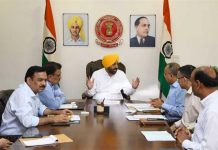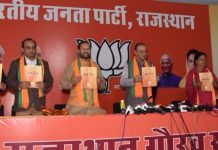[box]
A Brief History of SIMI (1977 – 2008)
The Founding SIMI
was founded in Aligarh on April 25, 1977 as an organisation run exclusively by member students. Its uniqueness lay in the fact that here were college students and not just madarsa alumni who had come together to follow the path set by the Quran and Prophet Mohammad and evangelise. The first president was M Ahmadullah Siddqi were Ph.Ds. One was a doctor. Although SIMI was affiliated with the umbrella Muslim group, the Jamaate- Islami Hind, it fiercely maintained its autonomy independence. over time, it gained prominence as it attracted students.
[/box]
Radicalisation SIMI
first came to national attention in 1984 with a conference it organised in New Delhi to debate the challenges before India’s Muslims. About 10,000 students reportedly participated in it. With a young leadership at the fore, fiery speeches were inevitable. The media took note — so did the police and intelligence agencies. Subsequently, the group began reacting to political issues as well as pan-Islamic ones. In 1985, it led protests against the Supreme Court verdict in the Shah Bano case. The demolition of the Babri Masjid in 1992 radically transformed the public posturing of SIMI. By now, the Jamaat had grown too uncomfortable with SIMI and the two parted.
[box]
Terror Profile
The first criminal cases against SIMI began to surface 1998 onwards. With the BJP-led NDA in power at the Centre and the BJP ruling Uttar Pradesh, a war of words began between the Muslim students’ body and the Hindu organisations such as the VHP and the Bajrang Dal. Security agencies began building a case against SIMI. By 2000, the Union Home Ministry had begun to say that SIMI was under its scanner for possible connections with Pakistani terror groups.
[/box]
An Outlaw
In the wake of the terror attacks in the United States, the Indian government banned SIMI on September 27, 2001, under the Unlawful Activities (Prevention) Act 1967, for two years. The ban was renewed thrice. Each time, a tribunal constituted by the Centre upheld the ban after elaborate proceedings. But the fourth ban promulgated on February 8 this year was rejected by a tribunal headed by Delhi High Court judge Geeta Mittal on August 6. The next day, however, Supreme Court Chief Justice KG Balakrishnan stayed the tribunal’s order.












